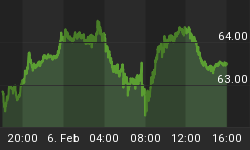The National Association of Realtors released results stating sales actually rose .04% (statistically significant?), but were down 20% from last year with prices down across the board. The Times Online is reporting Shiller Says America could plunge into Japan-Style Recession.
 "Losses arising from America's housing recession could triple over the next few years and they represent the greatest threat to growth in the United States, one of the world's leading economists has told The Times.
"Losses arising from America's housing recession could triple over the next few years and they represent the greatest threat to growth in the United States, one of the world's leading economists has told The Times.
Robert Shiller, Professor of Economics at Yale University, predicted that there was a very real possibility that the US would be plunged into a Japan-style slump, with house prices declining for years.
Professor Shiller, co-founder of the respected S&P Case/Shiller house-price index, said: "American real estate values have already lost around $1 trillion [£503 billion]. That could easily increase threefold over the next few years. This is a much bigger issue than sub-prime. We are talking trillions of dollars' worth of losses."
He said that US futures markets had priced in further declines in house prices in the short term, with contracts on the S&P Shiller index pointing to decreases of up to 14 per cent.
"Over the next five years, the futures contracts are pointing to losses of around 35 per cent in some areas, such as Florida, California and Las Vegas. There is a good chance that this housing recession will go on for years," he said."
My take: I believe that my blog's readers are considerably above average in financial acumen and common sense. The NAR is simply not an entity to be taken too seriously, due to the obvious conflict of interest exemplified by their ex-economist, David Lereah, who published some of the most absurd BS I have ever seen come from a nationally reknown organization. Examples of his work from Wikipedia: Are You Missing the Real Estate Boom?: Why Home Values and Other Real Estate Investments Will Climb Through The End of The Decade, And How to Profit From Them was published in February 2005 at just about the tippy top of the bubble (that takes some talent). One year later in February 2006, as the market is already on it's way down, Lereah retitled his book Why the Real Estate Boom Will Not Bust and mHow You Can Profit from It. Lereah's previous book The Rules for Growing Rich: Making Money in the New Information Economy touting investment in technology company equities was published in June 2000 at the onset of the collapse of the dot-com bubble. This extreme cheerleading has died down substantially, but the overly optimistic spin is still evident with their new economist, Lawrence Yun.
Mr. Shiller, is a different story, though. He is to be taken seriously and has no such conflicts that I can see. BUT (there always is a but, isn't there?), you should know what it is you are looking at when you stare at his numbers. In September of last year (Happy New Year, everybody) I cautioned about misreading the numbers from the Case-Shiller index (see The Real Trend in US Housing Prices...).
 The Case Shiller index, although an econometric marvel (it is uncannily accurate for what it intends to do), does not capture the true essence of the housing downturn. It uses something called the "repeat sales methodology" for detached/semi-detached single family, owner occupied homes. This means that to be included in the index, the house would have had to be sold in an arm's length transaction more than once. It also takes pains to only include owner occupied detached/semi-detached homes. That excludes:
The Case Shiller index, although an econometric marvel (it is uncannily accurate for what it intends to do), does not capture the true essence of the housing downturn. It uses something called the "repeat sales methodology" for detached/semi-detached single family, owner occupied homes. This means that to be included in the index, the house would have had to be sold in an arm's length transaction more than once. It also takes pains to only include owner occupied detached/semi-detached homes. That excludes:
-
new construction - hence all of the homebuilder's heavily discounted inventory sold is not counted,
-
it excludes condos (where the biggest drops in price are to be found),
-
it excluded multi-family units (those that thought rental income would save them),
-
and it excludes investment properties and flips (again, where much of the damage is done).
Trust me, the Shiller index actually makes things look pretty compared to what is actualy going on out there. I use a proprietary guage that starts with the Shiller-based futures but adds back all of the stuff above (with a slight tweak for futures markets tend to overshoot the mark), and it has proven to be much more realistic. This is how I forecast values for the homebuilders and banks, see ![]() Ryland Group Summary Update for a summary example.
Ryland Group Summary Update for a summary example.
















